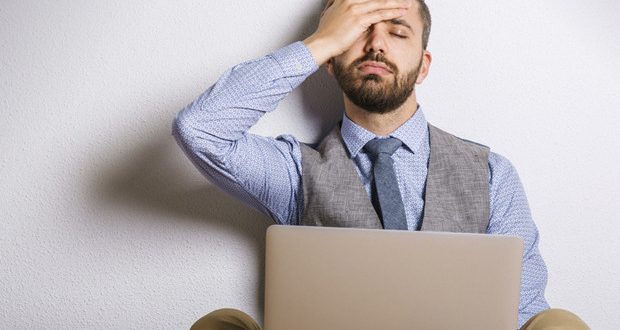Blogging can be a lucrative hobby or even turn into a rewarding career. I appreciate the privilege to include an article on KerrySEO.co.uk, which has been a valuable resource during my journey as a blogger. If you happen to be a WordPress user, Irecommend you read over their article about how you can make your WordPress blog more secure.

Whenever you use the internet, whether for blogging or anything else, you may be putting your personal information at risk. The unfortunate part about the internet is that it’s not without risks; there are hackers and malware in the most unexpected places online. Some might even be lurking on your blog.
By blogging regularly, you’re sure to have a fan base eventually, but depending on what you’re blogging about, you might also develop a following of internet trolls and those who are simply out to get you because they disagree with your views. Sometimes they might try to sabotage your reputation online and, if things get really bad, hack into your accounts or leave malicious hyperlinks in the comments section of your blog.
Not only can these people negatively affect your day to day life, but they can also target your fan base. The most important thing you can do to protect your blog is brush up on some internet security tips. For starters, here are five security mistakes that are common amongst bloggers.
- Blogging Without Security Software
Blogging doesn’t typically seem like an unsafe activity overall, but the truth is, it can be. If you’re using the internet without any security software, your device could be under attack without your knowledge. Malware and spyware can hide itself on your computer, smartphone or tablet, sometimes presenting itself as unusual glitches that don’t really seem out of the ordinary.
One of the solutions to this issue is an anti-virus program that can scan your device for malware, but there’s also additional software that will provide you with a bit more protection online. Using a Virtual Private Network (VPN) whenever you connect to the internet is another great choice that can help you avoid malware and hackers. If you’ve never heard of a VPN before, it’s a remote server that can hide your location and secure you internet connection.
When you open up the VPN software, you’ll be given a choice of several different cities to choose from, some of which are outside of your home country. After choosing your desired location, you’ll be able to connect to the remote server. By doing so, all of your internet traffic will be routed through the VPN’s server, masking your IP address (which is how your location is identified on the internet) and encrypting your connection.
A VPN is particularly useful to have when you’re blogging on the go. When you’re using the internet away from home, you might be connecting to public WiFi (some phones even automatically connect to these unsecured networks). The problem is that while you’re doing your usual online activities on public WiFi, a hacker could be in the midst of accessing your personal information and spying on whatever you’re doing on the net.
A VPN prevents this from occurring because of its encryption, allowing you to blog without worries no matter where you connect to the internet. When combined with an anti-virus program, you’re sure to have a much safer experience online!
- Reusing Their Passwords
Secure passwords are one of the most important things online when you’re trying to protect your personal information. If your passwords are weak, hackers can easily get into your accounts, which can cause a huge problem not only for your blog, but also for your followers. Data breaches aren’t fun for anyone but luckily taking the proper security measures to prevent them is easy.
When it comes to your passwords, never reuse any of them. Even if using the same password for more than one account seems convenient, it can cause you a whole lot of hassles. Another piece of advice that is important to know is to keep all of your passwords at least eight characters long.
Be sure to include a combination of symbols, numbers and uppercase and lowercase letters in your passwords as well. When creating one, avoid using any personal information (including anything that might be related to your blog), and always use more than one word. Whenever possible, consider using passphrases, and change your password at least every few months.
- Forgetting To Log Out
Not every website automatically logs you out after you’re done using it, and depending on your blog, you might remain logged into your account after you’re done writing your posts. If this happens, anyone who might be able to access your device afterward could easily get into your account and wreak havoc. Unfortunately, storing your passwords poses a risk as well so it’s best to never save them.
Most importantly, remember to log out of all of your accounts when you’re done using them. For maximum protection, keep your devices password protected too and log out after each use.
- Not Backing Up Their Blog
Keeping backups of all of your files is really important. If your device does happen to fall victim to malware, all of your documents, photos and other files could be wiped clean. Without a backup, your data won’t be able to be restored.
The same goes for your blog. Without a backup, it’s unlikely that you’ll be able to restore it if a security breach ever occurs. Sometimes your web host might automatically backup your site for you, but don’t always expect this to be the case.
When backing up your blog or anything else, be sure that you keep at least two or three copies of your backups on separate devices. For storing them, you can use an external hard drive, thumb drive, SD card, or you may want to use an online-based storage service,such as Dropbox. Refer to your web host’s page for instructions on how you can back up your blog, and remember to keep your backups up to date.
- Oversharing Personal Details
Some blogs are inherently personal, but there are still some things you shouldn’t share online. Things such as your home address, banking information, place of work and anything that can be used to personally identify you or your family offline shouldn’t be shared. You should also avoid giving out any information about your travel plans until after you’ve returned home from your trips.
Sometimes it can be hard to realize how some things shared online can cause you trouble, but by oversharing about your personal life on the internet, you risk running into real world problems. Modern thieves and burglars sometimes use your blog and social media profiles as a way to know when and where you will be somewhere. It’s important to not only keep some of the details to yourself (at the very least until you return home), but also to avoid posting photos online that can clue any viewers in on where you might be at the time.
Blogging Safely
When you’re not blogging about anything that can be considered controversial, you may not be a prime target for hackers. The less enemies you have online, the better. However, the risk is still there, as it is for everyone who chooses to use the internet.
The sad truth is that sometimes hackers are just looking for some fun and will target anyone. And as for malware, it has no preference and passes no judgment. On the bright side, when you properly secure your devices and follow security tips to avoid these sorts of threats online, the risk of encountering issues is much less when compared to the average user.
 Author Bio:- Cassie Phillips is a blogger who has experience with educating others about the dangers of the internet and how they can avoid cyberattacks. For some more great tips on how you can safe-guard your website and protect yourself online, she recommends that you visit SecureThoughts.com.
Author Bio:- Cassie Phillips is a blogger who has experience with educating others about the dangers of the internet and how they can avoid cyberattacks. For some more great tips on how you can safe-guard your website and protect yourself online, she recommends that you visit SecureThoughts.com.
 Latest Digital Marketing Trends
Latest Digital Marketing Trends




